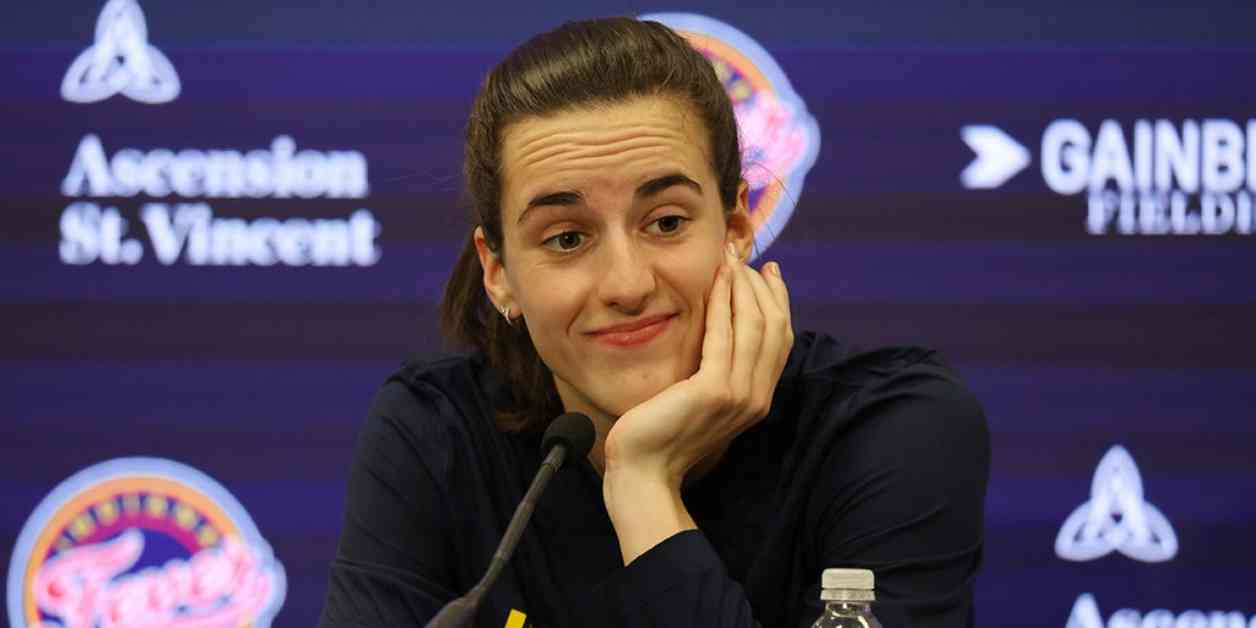Caitlin Clark, the standout rookie guard for the Indiana Fever, recently made headlines not just for her impressive performance on the court, but also for her outspoken criticism of the expensive Fever tickets and the low salaries in the WNBA. Following a record night where the Fever secured a 92-75 victory over the Seattle Storm, Clark took the opportunity during the post-game press conference to address these pressing issues that are impacting not only herself but her fellow WNBA players as well.
Criticizing Expensive Fever Tickets
One of the main points that Caitlin Clark raised during the press conference was the high cost of season tickets for the Indiana Fever games. When asked about teammate Lexie Hull potentially getting season tickets for her family, Clark was quick to point out that they were “pretty expensive.” She mentioned that the price of season tickets was almost equivalent to their entire salary, highlighting the financial strain that WNBA players face when trying to afford basic amenities like tickets to their own games.
The issue of expensive tickets is not unique to the Indiana Fever but is a common problem across the WNBA. Despite the league’s efforts to increase attendance and fan engagement, the high cost of tickets remains a barrier for many fans, especially those who are already struggling to make ends meet. This disparity in ticket prices not only affects the players’ ability to have their loved ones support them at games but also hinders the overall growth and popularity of the league.
Challenges of Low WNBA Salaries
In addition to addressing the issue of expensive tickets, Caitlin Clark also spoke out about the notoriously low salaries in the WNBA. As a first-year player in the league, Clark is earning just over $76,000 in her rookie year, a stark contrast to the multi-million dollar contracts that male athletes in other professional leagues receive. This disparity in pay has been a longstanding issue in women’s sports and has drawn criticism from players, fans, and advocates for gender equality.
The discrepancy in salaries between male and female athletes is not just about the numbers on a paycheck but also reflects deeper systemic issues of gender inequality and discrimination in sports. Despite the WNBA’s efforts to increase player salaries and provide more opportunities for female athletes, there is still a long way to go in achieving true equity and fairness in the world of professional sports.
Supplemental Income Opportunities
Despite the challenges of low salaries in the WNBA, players like Caitlin Clark have found other ways to supplement their income and secure financial stability. In addition to her contract with the Indiana Fever, Clark has reportedly made an estimated $3 million in NIL (Name, Image, Likeness) deals and recently signed a lucrative endorsement deal with Nike. These additional sources of income not only provide players with financial security but also help raise their profile and expand their brand beyond the basketball court.
The rise of NIL deals and endorsement opportunities for WNBA players represents a positive shift in the landscape of women’s sports, offering athletes the chance to capitalize on their talents and marketability in ways that were previously unavailable to them. By leveraging their personal brand and engaging with fans and sponsors, players like Caitlin Clark are not only advocating for their own financial well-being but also challenging traditional norms and stereotypes in the sports industry.
In conclusion, Caitlin Clark’s criticism of expensive Fever tickets and low WNBA salaries shines a spotlight on the ongoing challenges and inequalities that female athletes face in the world of professional sports. By speaking out and advocating for change, Clark is not only advocating for herself and her fellow players but also paving the way for a more equitable and inclusive future for women in sports. It is crucial for fans, sponsors, and league officials to listen to the voices of athletes like Caitlin Clark and work towards creating a more just and supportive environment for women’s sports to thrive.


